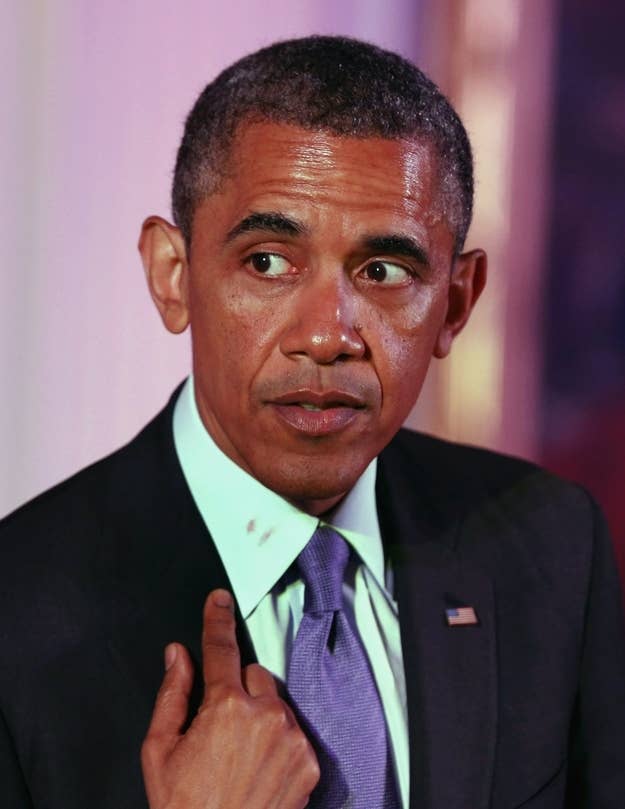
WASHINGTON — The IRS, Benghazi, Marines holding umbrellas … it's gotten to the point that even seasoned political reporters are having trouble keeping track of the various scandals, allegations, and investigations dogging President Barack Obama's administration these days.
This isn't Obama's first term, when the biggest "scandals" emerged from the fringiest reaches of the political world and related to absurd questions about his birth certificate or whether he and the first lady were engaging in some sort of secret terrorist handshake.
Now, the administration is facing fundamental questions about it's treatment of political opponents and the press, whether it has engaged in inappropriate or even illegal killings of American citizens abroad.
1. IRS
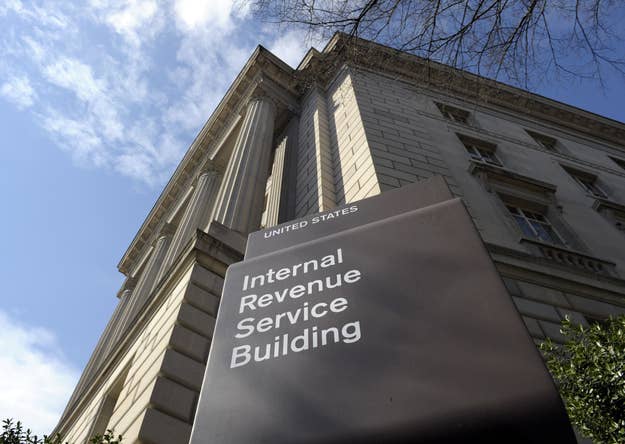
Conservative activists on the talk radio circuit had complained for years of unfair scrutiny from the tax enforcement agency, but the IRS scandal exploded last month when a draft Inspector Generals report came out, revealing a concerted effort by officials to scrutinize organizations with words like "Tea Party" and "patriot" in their names.
The rules governing political activities by tax exempt organizations are, at best fuzzy, and the IRS has never had much of a hard and fast definition of when a group may cross the line.
The IRS has also never had a particularly great track record of enforcing the rules, which made the fact that the service targeted groups opposed to Obama and his progressive ideals in general all the more noteworthy.
The administration has thus far struggled to put the scandal to bed: they initially argued it was the work of a handful of over worked employees in the IRS' Cincinnati office; then, when it became clear more senior officials knew of the targeting, the White House sacked the IRS' acting director.
Over the last several days White House supporters have pointed out that a number of the groups targeted were, indeed, engaging in significant amounts of political activity — something that would reasonably trigger scrutiny.
Although that argument doesn't necessarily exonerate the IRS for targeting groups based on ideology, it at least gave backers of the administration a leg to stand on. Unfortunately on Wednesday NBC News reported that high level officials at the IRS had also requested information on Tea Party groups in particular.
On Wednesday, Tea Party activists filed suit against the IRS, while Sen. Lindsey Graham on Tuesday called for a special prosecutor to be designated to launch an independent investigation.
Congress has already held several hearings into the scandal, and Oversight and Government Reform Chairman Darrel Issa will likely try to force Lois Lerner, director of Exempt Organizations, to testify before his committee next month. Lerner exercised her right to remain silent during a hearing earlier this month, but not before asserting her innocence, a decision that Issa and Republicans insist means she actually ceded her right to not incriminate herself.
There are few things people hate more than the IRS, and for Republicans the scandal has provided proof that Big Government is, in fact, out to get them. That's a potent cocktail in any situation, and plays perfectly into the over arching complaint that Obama has created an atmosphere in Washington in which opponents are harshly punished.
With Democrats aggressively piling on the IRS, the central questions remain exactly who directed the scrutiny of conservative groups, and why.
2. Benghazi
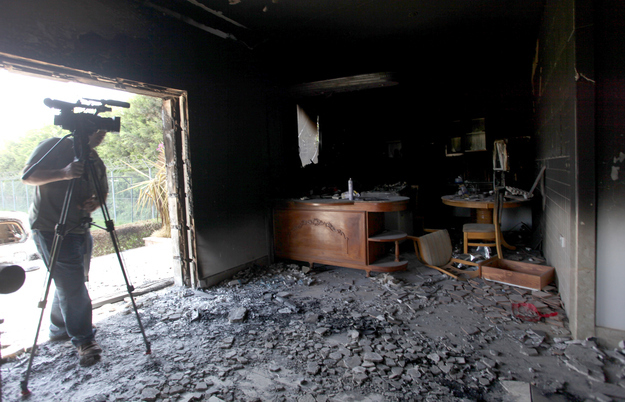
The September 11, 2012 attack on the U.S. facility in Benghazi left Ambassador Chris Stevens and three other Americans dead. In Washington, it opened the first serious chink in Obama's anti-terror record, and Republicans in Congress have dutifully worked to exploit it.
But while government inquiries have centered on how security could have been so lax, Republicans have put most of their energy into investigating how former Secretary of State Hillary Clinton, Obama and former UN Ambassador Susan Rice talked about the attack in the days following Stevens' death.
Republicans ranging from Issa to Sen. Lindsey Graham have accused the administration of engaging in a coordinated effort to hide the involvement of Al Quaeda affiliated terrorists in the attack and, at least initially, push the blame onto an incendiary YouTube video produced by conservatives that angered many Muslims. This was done, Republicans argue, to create political cover for Obama during his election, or Clinton for a future presidential bid, or both.
Although the administration insists the scandal is nothing more than an exercise in bureaucratic ass covering gone wrong, continued resistance to congressional oversight by the administration has given this scandal serious legs.
This may be the weakest of the various "scandals" hovering over the White House, as it focuses on what is essentially routine spin, not on the underlying tragedy. But that's not to say this scandal is going to go away: it won't. Issa on Tuesday announced that he was subpoenaing State Department officials, telling Secretary John Kerry in a letter that "The State Department has not lived up to the Administration's broad and unambiguous promises of cooperation with Congress. Therefore, I am left with no alternative but to compel the State Department to produce relevant documents through a subpoena."
There are also underlying questions about the security in Libya during the attack, the White House's response, why the administration hasn't arrested the suspects yet and the broader question of how we engage potentially hostile populations on their home turf. Republicans have only recently begun to plum those waters, State Department and White House officials can expect to be hauled before committees multiple times between now and election day 2014.
3. DOJ Media Spying
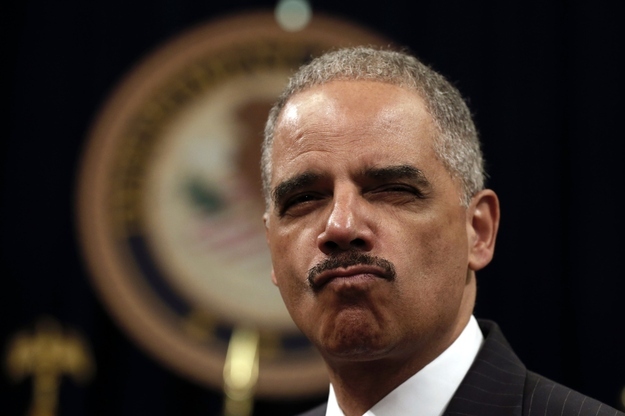
Arguably the least public of the major scandals now facing Obama's White House, Attorney General Eric Holder's pattern of spying on media outlets to root out leakers has the potential to be one of the most damaging.
That's partly because of how little we still know. There are broader constitutional questions raised by DOJ's secret subpoenas of the Associated Press's phone records and it's tracking of a Fox News reporter's movements, in quests to root out unauthorized leaks. Holder has so far refused to say just how many times DOJ has spied on the media — or what kinds of activities they've been monitoring. Issa's committee and the Judiciary Committee are seriously considering holding hearings into the scandal, and there are growing concerns on Capitol Hill that DOJ may have been using these cases to also monitor members of Congress.
And unlike the IRS, don't look for Obama to oust Holder, who is a close friend and confidant.
There is also a political price for the administration that could have wide ranging implications for every aspect of Obama's second term. Holder has, essentially, declared a war of sorts of the media and on its sources. At time when administration officials arguments regarding various scandals boil down to "trust us," making an enemy of the media is at best misguided.
But more fundamentally the media spying scandal has put the administration and reporters at odds with each other in a much more aggressive way than normal. Both the Clinton and Bush administrations saw their relationships with the press corps sour, and neither were able to fully recover, spending their last years facing a combative White House press room on a daily basis.
4. Drones

Sen. Rand Paul's historic filibuster earlier this year brought public scrutiny to Obama's expansion of the use of drones. For the first time since the widespread use of killer Predator drones began under the Bush administration lawmakers, and the public, were openly questioning where the authority came from for the White House to purposefully target Americans living abroad while worrying over their potential use on American soil.
Paul critics have insisted the filibuster was a cheap political stunt and assure the public the White House would never approve drone killings in a domestic situation. But that has done little to quell concerns — a fact that Obama's recent speech outlining a plan to rework drone policies hints at.
Although the drone scandal has fallen off the political radar, should the review process breakdown — or more Americans die — Paul and other civil liberties advocates are sure to try and make it front and center once again.
5. The Scandals That Weren't
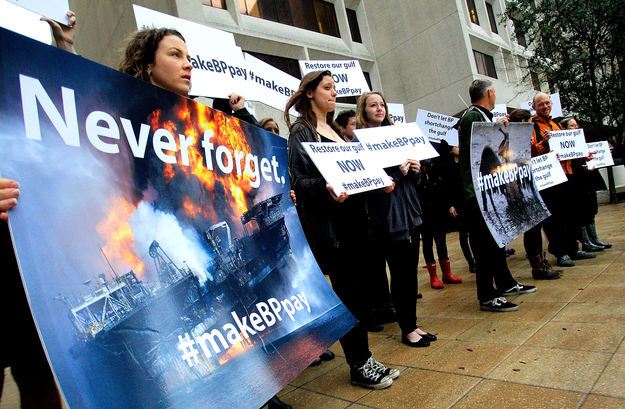
Throughout his first term, Obama demonstrated an adeptness at avoiding getting caught up in the various scandals that surrounded him. For all the conservative fury over Czargate, Fast and Furious and Solyndra, there was never much of a negative impact on Obama.
And that's not to mention scandals that never were, most notably the BP oil spill. One of the nation's worst environmental disasters, the Deep Water Horizon explosion could have easily become Obama's equivalent of Hurricane Katrina.
Some, like Fast and Furious, continue to percolate and could, in theory, come back to bite the administration, particularly if new information emerges.
But it's a testament to Obama's ability to control the message and, as with the BP oil spill roll with the punches, that these scandals never bloomed into full blown crises.
6. [INSERT RANDOM WORD HERE]Gate
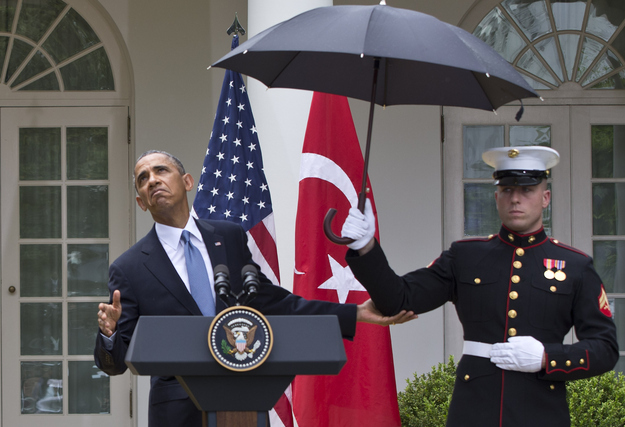
The microsecond news cycle has, perhaps predictably, brought along with it the birth of the days or hours long "scandal." Already this year we've seen it with Umbrellagate, Salutegate, even the hand wringing from progressives and conservatives over Obama's trip to Israel. Somewhere someone is already prepping their annual "President Obama Golfs Too Much" post for the August recess.
These sorts of "scandals" are the political equivalent of a 5 Hour Energy drink — empty moments built on temporary energy that provide absolutely no value to the body politic but which can be oddly addictive and turn otherwise sane, rational adults into blathering outrage machines.
7. EPA, Obamacare, and the Scandals of the Future
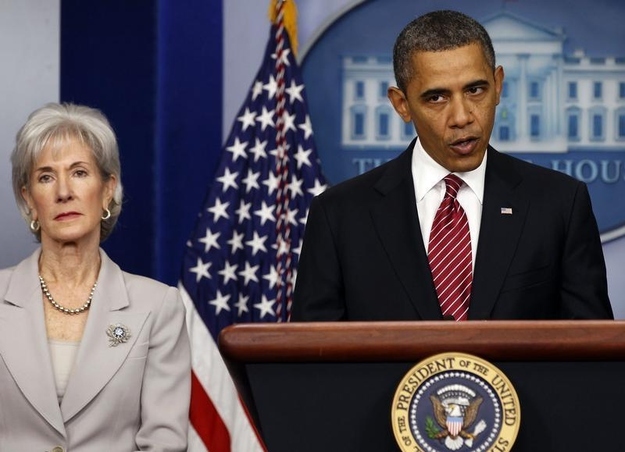
Predicting what will and won't become a real scandal for an administration is never easy: The furor over the deaths of federal agents in a gunrunning scandal known as "Fast and Furious" seemed to have all the hallmarks of a great Washington drama, but it never fully materialized. The suicide of Vince Foster, on the other hand, went from the private tragedy of a family to one of the right's great White Whales of the Clinton-era.
That said, Republicans are digging into any number of areas, looking for the next big scandal to hang around Obama's neck. For instance, House lawmakers are already investigating EPA over allegations that the agency routinely denies Freedom of Information Act requests by conservatives but not those of liberal groups. Given the IRS and media spy scandals, this one could give conservatives more ammunition to paint the administration as using its power to stifle criticism.
Republicans in the House and Senate are also looking into Health and Human Services Secretary Kathleen Sebelius for fundraising on behalf of a nonprofit group called Enroll America. The group is designed to help "educate" the public on Obamacare in an effort to bring people into the system. Although it's unclear whether the fundraising is illegal, it is clearly unusual. And with the law beginning to come into force this year, Republicans will almost certainly seize any opportunity to tie it into knots and paint it in the worst possible light in the run up to the 2014 elections.
